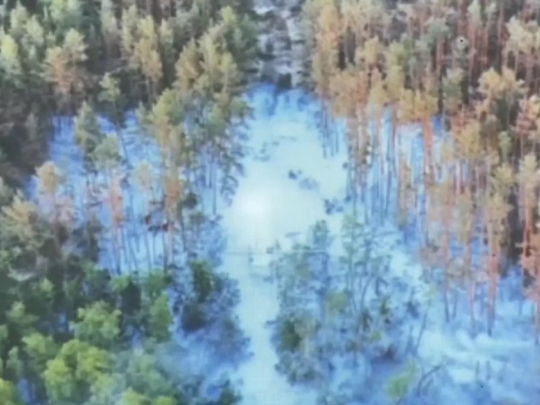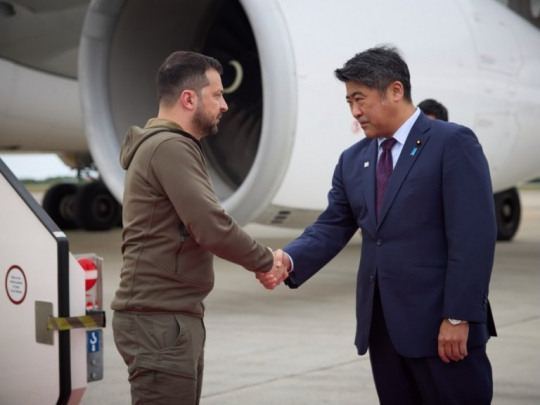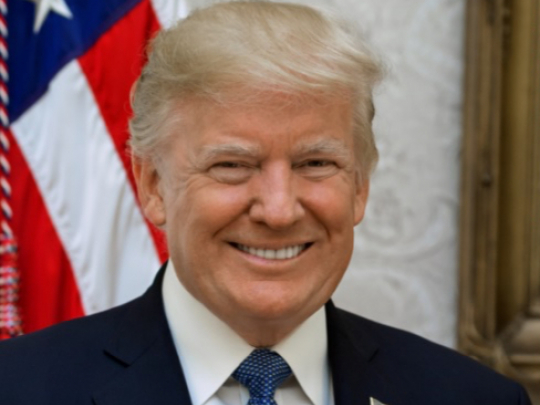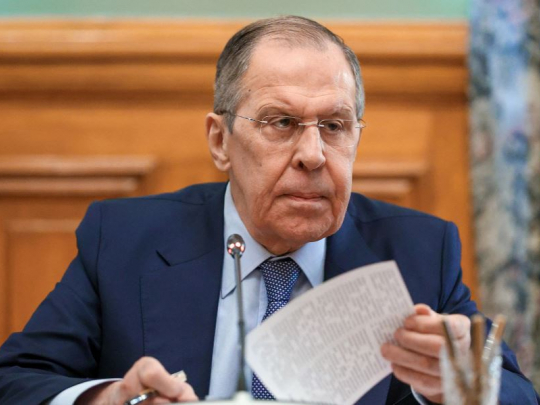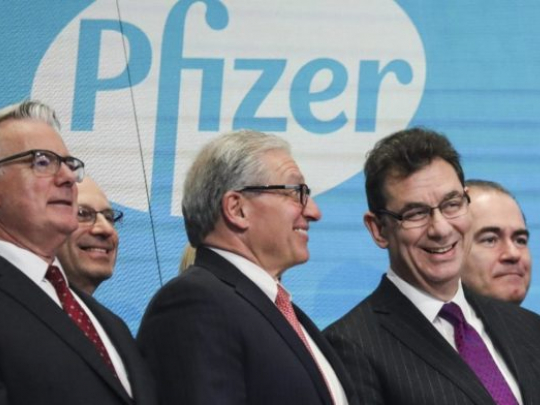Russia Warns Gulf Intervention in Syria Risks World War
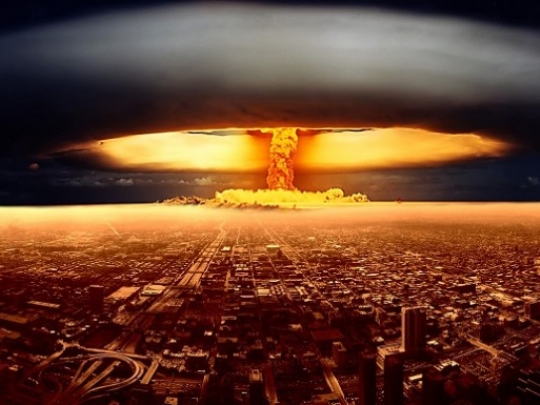
Moscow warned Thursday that any move by Gulf nations to send in troops to support the rebels in Syria would risk a “new world war.” It also said that it had made a “quite specific” cease-fire proposal for Syria as foreign ministers gathered in Munich, hoping to revive a floundering peace process amid warnings of a “new world war.”
Meanwhile, a Saudi source said a new Saudi-led coalition to fight “terrorism” in Islamic countries will gather in the kingdom next month for its first publicly announced meeting.
This development came days after the kingdom, which backs some of the rebels that Moscow is helping to defeat, has floated the idea of sending ground troops to help the U.S. effort against Daesh (ISIS).
This was criticized by Russian premier Dmitry Medvedev, who said, “The Americans and our [Arab] partners must think hard about this: Do they want a permanent war?” he told Germany’s Handelsblatt daily.
“We made propositions for a cease-fire that are quite specific,” Russian Foreign Minister Sergey Lavrov said as he sat down for talks with U.S. counterpart John Kerry.
Moscow has refused to confirm reports that its cease-fire would take effect only on March 1, giving another three weeks to an offensive which the U.N. says could place 300,000 people under siege. Observers say the shelling on Aleppo have killed 500 people since they began on Feb. 1.
The meeting in the German city of Munich was meant to allow powers to coordinate support for ongoing talks, but instead has turned into a desperate bid to resurrect them.
A Western diplomat told Reuters that U.S. Secretary of State John Kerry wanted an immediate cease-fire in Syria – “All or nothing.” Moscow, however, had proposed a truce that would begin only from the start of next month, giving its Damascus allies 18 more days to recapture Aleppo, once Syria’s largest city. Western powers were hopeful wording could be agreed that at the very least would allow more access for aid to besieged areas.
“Here we need something of a breakthrough,” said German Foreign Minister Frank-Walter Steinmeier. “Today, we will try what has not been achieved so far especially, to get better supplies to people locked in Syria and link this to first steps in a significant reduction of violence.”
But a senior Western diplomat summed up the pessimistic outlook: “This meeting risks being endless and I fear the results will be extremely small.”
Lavrov, who met Kerry ahead of the talks, said Moscow had submitted proposals for a cease-fire and was awaiting a response from other powers. But Western officials do not expect Moscow to accept the immediate halt to bombing Washington seeks.
Kerry said he expected a “serious conversation.”
“Obviously, at some point in time, we want to make progress on the issues of humanitarian access and cease-fire,” Kerry said.
Russia is widely viewed as unlikely to halt support for the government advance until Damascus achieves its two main objectives: recapturing Aleppo and sealing the Turkish border, for years the lifeline for rebel-held areas.
That would amount to the most decisive victory of the war so far, and probably put an end to rebel hopes of removing Assad by force, their goal throughout five years of fighting that has killed 250,000 people and driven 11 million from their homes.
“The goal is to totally liberate Aleppo and then to seal the northern border with Turkey,” said Ivan Konovalov, director of the Center for Strategic Trend Studies in Moscow, explaining the Russian government thinking. “The offensive should not be stopped – that would be tantamount to defeat.”
Washington is leading its own air campaign against Daesh militants, but has resisted calls to intervene in the main battlefields of Syria’s civil war in the west of the country, where the government is mostly fighting against other insurgent groups.
That has left the field to the Russians, who support Assad against an array of rebel groups backed by Turkey, Arab states and the West.
A Western diplomat said that details of how the grouping of the new Saudi-led coalition would work remained unclear and “they don’t have the infrastructure” yet to run such a coalition.
“This is official now, that they will meet end of March,” the Saudi source said, without giving a date.
The source added that the coalition now has 35 members, up from the 34 announced initially.
Member countries named previously by the Saudis range from the tiny African nation of the Comoros to major regional powers like Turkey.
Saudi Arabia said the alliance would share intelligence, combat violent ideology and deploy troops if necessary.
The kingdom is a member of the U.S.-led coalition that has been bombing Daesh in eastern Syria and northern Iraq for more than 18 months.
- Source : Agencies




